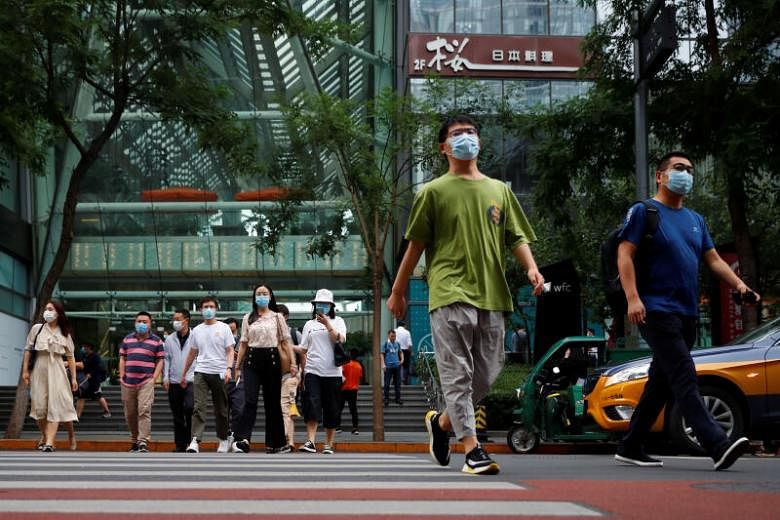BEIJING - Health authorities in Beijing on Monday (June 29) had still not identified the source of a new Covid-19 outbreak linked to a wholesale market south of the capital, more than two weeks after a string of cases were reported.
"The current situation is still severe and complex, and we must not ease up on our series of virus control measures," city official Xu Hejian said at an evening press conference.
"We must not give the virus an opportunity to spread and always try to stay one step ahead," he added.
Beijing on Monday reported seven new infections, taking the total number of cases linked to the Xinfadi Wholesale Market to 318. There are dozens more cases in other provinces, from neighbouring Hebei province, where an entire county of 400,000 has been placed under lockdown, to Liaoning province some 400km away.
"Priority for a second nucleic acid test should be given to those linked to the Xinfadi Wholesale Market whose quarantine period is coming to an end," Mr Xu told reporters.
"This is to further strengthen the flow of investigations, to identify the chain of infection as soon as possible," he added.
As it battles the ongoing outbreak, the city has tried to refrain from imposing the large-scale lockdowns witnessed earlier this year in a bid to keep its economy running.
But with the outbreak linked to a food source - Xinfadi provided some 80 per cent of the city's food supplies - restaurants and eateries have been hardest hit as worried diners stay away.
During the briefing, the authorities also said they had tested some 1.18 million people working in all parts of the food supply chain, including market workers, those in the food and beverage industry and delivery men.
"There are strict control measures in the food supply chain so businesses, markets and stallholders have to be responsible. We are increasing measures in abattoirs, cold storage warehouses, agricultural markets, supermarkets, F&B outlets, and eateries to ensure thorough cleaning and airing of the venues, disinfection and to protect workers," said city official Xu Hejian.
"This will be strictly enforced in closed ventilation areas such as bars, beauty and hair salons, and special attention must be given to areas of congregation like workers dormitories," he added.
Individuals who either worked at or have visited the market would have their quarantines extended by another 14 days, said Dr Shi Guoqing, deputy director of the emergency centre of the Chinese Center for Disease Control and Prevention (CDC).
They will also have to be tested a third time before being released from quarantine, health officials said.
Beijing could report zero new cases in a week because the infections being detected now comprise those already in quarantine and not those ordered to undergo mass testing, CDC chief epidemiologist Wu Zunyou told local media in an interview.
Beijing on Monday also lifted a lockdown on 10 more residential estates in Haidian in the north-western part of the city. This followed the reopening last Tuesday (June 23) of seven neighbourhoods west of the city. All the areas were put in a lockdown after the after cases linked to Xinfadi were discovered.
Residents were allowed out again after their mandated nucleic acid tests returned negative results.












